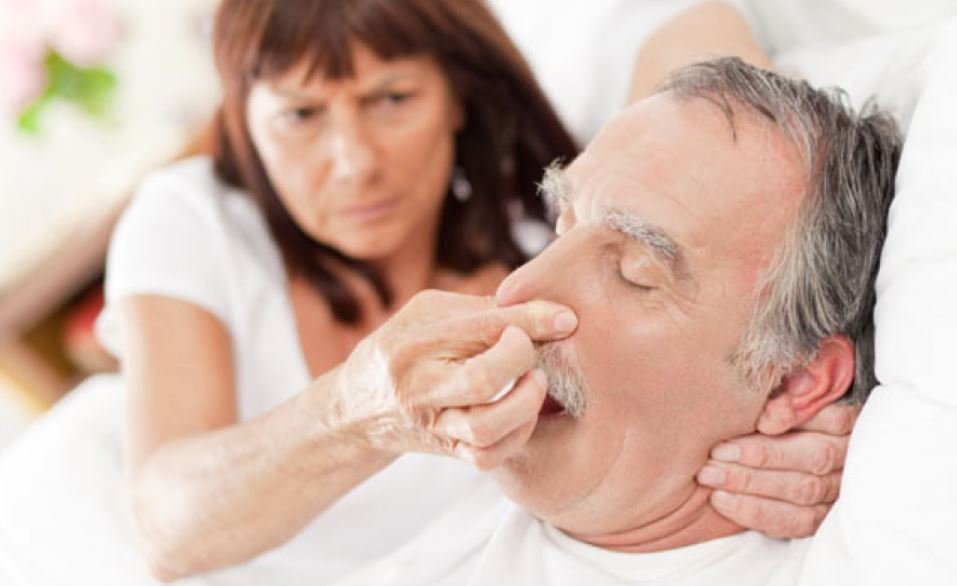

If you snore loud enough to wake the dead, then I understand why you are reading this article. Firstly, don’t feel like a bear in human form, about 45% of all people snore. Secondly, 70% of snoring is hereditary, so blame your parents.
Snoring happens as a result of constriction of air as you sleep. This means the air can’t move freely through your throat and nose as you sleep. When this happens, the surrounding tissues vibrate resulting in that guttural snoring sound.

Why do I snore?
Snoring too much can affect your sleep and that of your partner. So, it is important to know why it happens to begin with in order to reduce this problem.
However, different people snore for different reasons. Once you find the reason for yours, you can look for a solution. There are a few common causes of snoring:
As we age, our body changes in many ways. One of the ways is that the throat narrows while the muscle tone decreases which makes one more susceptible to this problem.
Turns out, men snore more than women. This is because their nasal passages are thinner than that of women. So, husbands are likely to be the ones banished to sleeping on the couch.
As mentioned above, 70% of snoring is hereditary. What is inherited is the factors that lead to this condition such as “a narrow palate, a cleft palate, enlarged adenoids and other physical attributes.”
Nasal congestion or sinus problems may lead to blocked airways or a narrowing of the nasal passages which makes it harder for air to travel through the airways. When this happens, inhaling becomes more difficult and a vacuum is created in the throat which results in snoring.
Nasal congestion can also occur when you have a cold, flu or allergy. This is why you find people snore more during allergy season.
Excessive weight is one of the main causes of snoring. When we gain weight, we also gain it around the neck area as well. This means there will be an increase in fatty tissue in the throat. Thich neck tissue will decrease the diameter of the throat, making it narrower.
Excess weight also reduces the muscle tone which contributes to this problem.
Both of these result in an increased likelihood that the airway will be constricted as you sleep.
The more you drink before you sleep, the higher the likelihood that you will snore. This happens for a couple of reasons.
First is that alcohol depresses the brain area that is responsible for breathing regulation. It also depresses the central nervous system causing relaxation of muscles. This means that the throat muscles relax, and that obstructs the airway.
The tongue also overly relaxes causing it to fall back and block the airways.
Lastly, too much alcohol can also cause nasal congestion leading to this condition.
Smoking is a habit that has many far-reaching effects and one is snoring. It is also one of the most common causes. Someone who wouldn’t regularly snore would find that they do when they smoke.
This is because the smoke irritates and inflames the lining of both the nose and throat which causes them to swell. A swollen airway doesn’t allow for air to easily pass through which causes snoring.
Certain medications affect the body the same way alcohol does, by relaxing the muscles. When this happens, the throat is constricted making it difficult for air to passes through and as a result causes snoring.
These include sleeping medications and tranquilizers like diazepam and lorazepam or medication for depression and anxiety. Medication for allergies also has the same effect.
When you sleep on your back, the throat is relaxed and therefore constricts the nasal airways. Although sleeping on your back may indicate that you are an open person, it could also be the very thing that is causing you to snore. One of the first recommendations to reduce snoring is to change your position.
What is sleep apnea? it is when breathing starts and stops during sleep. This is a potentially very dangerous sleep disorder that interferes with sleep quality because the brain doesn’t receive enough oxygen during the night. It also increases the likelihood of heart disease. There are three main types of sleep apnea:
Sleeping with your mouth open, which is unfiltered air that affects the nasal passages, weak throat muscles, and small nostrils. Not getting enough sleep can also cause you to snore.
References